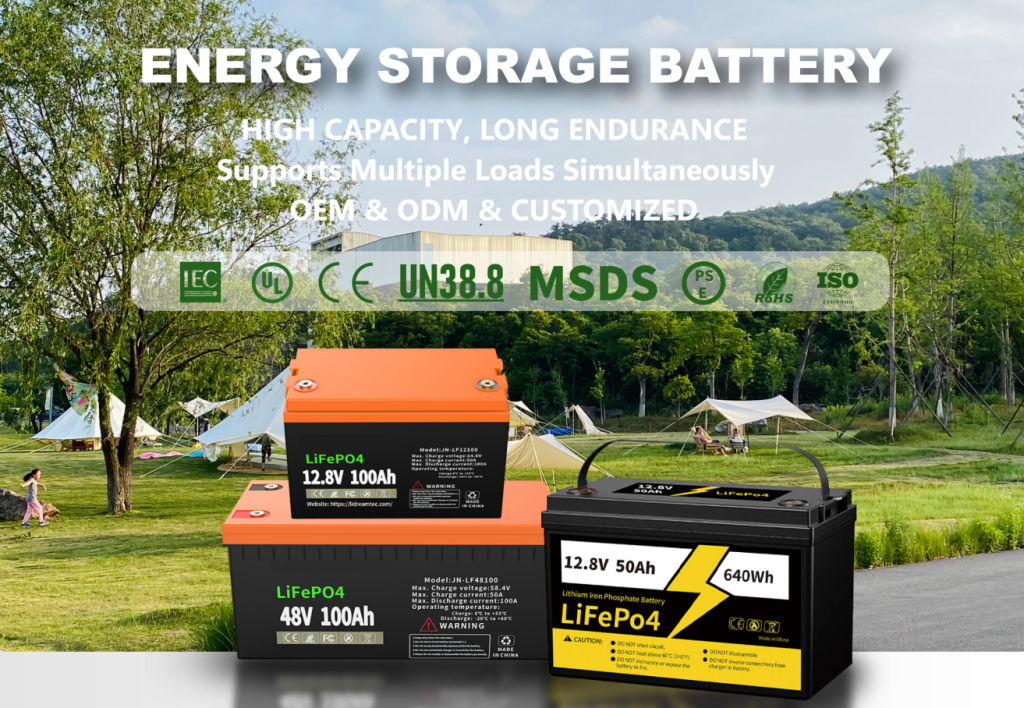Lithium-ion (Li-ion) and lithium polymer (LiPo) batteries are widely used in modern devices, from smartphones to electric vehicles. As the use scenarios continue to expand, people’s requirements for battery safety, reliability and compliance are also increasing. In order to ensure that products meet international standards and reduce risks such as thermal runaway, fire and environmental pollution, a series of battery certification systems have been established around the world. These certifications are not only the basis for ensuring battery safety performance, but also an important “pass” for products to enter the international market. This guide will systematically introduce the core certification content of lithium batteries in terms of safety, transportation, environmental protection, quality management and specific industry applications, helping manufacturers, suppliers and users to make more scientific and compliant decisions during the selection, production and procurement process.
Safety certification: ensuring the intrinsic safety of batteries
● IEC 62133 / UL 62133
Scope of application: portable secondary lithium batteries
Function: global universal safety standard, testing the performance of batteries under multiple abuse conditions such as electrical, mechanical and thermal.
Note: UL 62133 is the corresponding version for North America.
● UL 1642 / UL 2054
UL 1642: Safety standard for single lithium battery cells
UL 2054: For battery packs composed of multiple batteries, focus on testing circuit protection and structural safety
Application scenarios: consumer electronics, medical equipment, power tools, etc.
● IEC 62619
Application areas: industrial lithium batteries, such as UPS, power storage, electric forklifts
Test focus: thermal diffusion, explosion protection, BMS system evaluation
Transport certification: the prerequisite for safe cross-border circulation
● UN 38.3
Scope of application: all lithium batteries used for international transportation (independent or integrated in equipment)
Test items: 8 tests including high altitude, temperature, vibration, impact, short circuit, extrusion, etc.
Necessity: mandatory compliance standards for aviation, sea and land transportation
● MSDS / SDS
Content covers: battery chemical composition, handling methods, hazard descriptions and emergency measures
Function: safety reference for transportation, warehousing, emergency response, etc.
● IATA DGR
Scope of application: air transport
Core requirements: compliance with UN 38.3, complete labeling, compliant packaging, power limit (such as battery cell ≤ 30% SOC)
Environmental regulations certification: promote green and compliant production
● RoHS (Restriction of Hazardous Substances)
Restricted substances: lead, cadmium, mercury, hexavalent chromium, etc.
Function: ensure that products meet EU environmental standards and avoid toxic heavy metal pollution
● REACH (Registration and Evaluation Authority for Chemicals)
Goal: transparent management of chemical substances in batteries and control of substances of very high concern (SVHCs)
● Proposition 65 (California Proposition 65)
Requirement: When the battery contains carcinogenic or reproductive toxic substances, a warning label must be made on the product
Quality management certification: system guarantees product consistency
● ISO 9001
Content: comprehensive quality management system certification, covering the entire process of design, manufacturing and testing
● ISO 14001
Content: Environmental management system, reflecting the company’s commitment to sustainable development
Market access certification: opening global sales channels
● CE mark (Europe)
Directives involved: RoHS, EMC, LVD, etc.
● CB certification
Organized by IECEE: Multilateral recognition system based on IEC standards
● GB 31241 (China)
Applicable: Lithium batteries for portable electronic products
PSE (Japan) / KC (Korea) / BIS (India) / UKCA (UK)
Function: Mandatory market access mark for corresponding countries
Industry-specific certification: meeting high standards for specific applications
● Automotive industry
ISO 26262: Automotive functional safety standard
IEC 62660 / SAE J2929 / UL 2580 / IATF 16949: Full-process safety and quality certification for electric vehicle battery systems
● Aerospace
RTCA DO-311: Minimum performance standards for aviation lithium battery systems
● Medical equipment
IEC 60601-1: General safety standard for medical electrical equipment
● Micro-mobility equipment
UL 2271: Battery safety standard for electric scooters and electric bicycles
● Portable terminals
IEEE 1725 / 1625: System safety certification for battery packs for mobile phones, laptops and other devices
● Logistics services
IATA CEIV: Ensure that logistics service providers have the ability to comply with the compliance requirements for lithium battery transportation
Conclusion: Build a globally trusted certification system
In summary, the application of lithium-ion (Li-ion) and lithium polymer (LiPo) batteries continues to expand around the world, and must strictly comply with a series of international certification standards covering safety, transportation regulations, environmental responsibility, quality management, market access and industry applications. These certifications not only ensure the safety and reliability of the product during use, but are also the basic prerequisite for entering the international market and complying with regulatory requirements.
As a leading global lithium battery manufacturer, CHUNQU is committed to providing high-performance and high-safety power solutions for home energy storage, industrial and commercial energy storage and other fields. Our products have been exported to many countries and regions around the world. According to international authoritative certification standards such as UN 38.3, IEC 62133, UL, RoHS, REACH, etc., we guarantee the quality and safety of each product from design, manufacturing to delivery. Grepow has always been building a professional and reliable battery brand with a global vision, providing partners with reliable technical support and certification guarantees.
